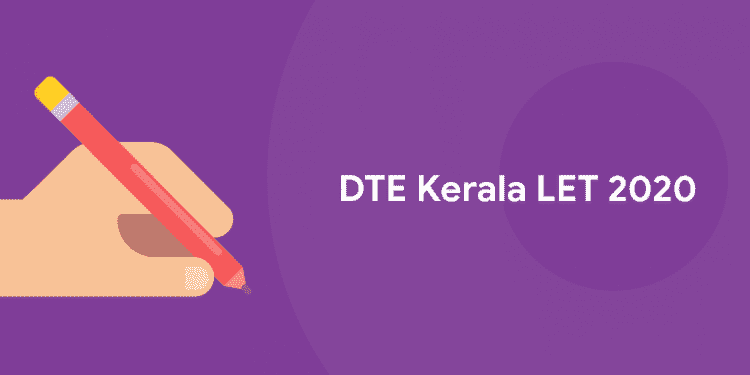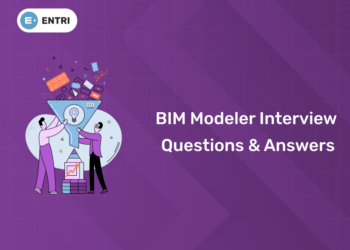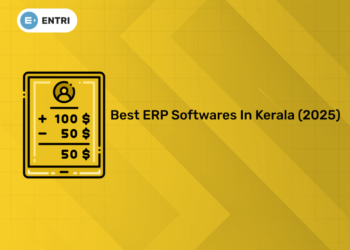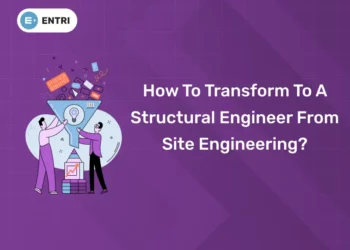Table of Contents
DTE Kerala LET entrance test is to select eligible candidates towards the engineering degree programmes in the state. Candidates who have completed Diploma, BSc, D.Voc can join the second year/ third semester of the B.Tech programmes. Directorate of Technical Education selects candidates based on their performance in the statewide entrance test. Candidates fees for the courses in Government, aided, and Government controlled, and self-financing Colleges will be depending upon the fees decided by the state government for that particular academic year.
Attempt Free Weekly Current Affairs Mock Test
DTE Kerala LET Eligibility
- Candidates maximum age as on the last date of submission of application will be 30 Years.
- Aspirants who have completed the diploma in Engineering/ Technology awarded by any state board of Technical Education or Institutions under Government of India with at least 45% marks (42% in the case of candidates belonging to SEBC and OEC category and 40% in the case of candidates belonging to SC/ ST category) are eligible.
- Candidates who have completed B. Sc with Mathematics as their main or subsidiary subject from a recognized university with at least 45% marks are also eligible. For candidates belonging to SEBC and OEC category, it should be 42% and 40% in the case of candidates belonging to SC/ ST category. These candidates should have passed 10+2 examination with Mathematics as a subject. These candidates should clear engineering Graphics/ Engineering Drawing and Engineering Mechanics of the First-year Engineering programme along with the Second year Subjects.
DTE Kerala LET Application
Candidates can get the application forms and prospectus in the websites of DTE Kerala and that of the technical education, Click Here. The application fee is Rs.750/- for general candidates and Rs.375/- for SC/ ST candidates. You can pay the application fees in ‘SHAKTI ACCOUNT’ of THE JOINT CONTROLLER OF TECHNICAL EXAMINATION at any branch of State Bank of India. Candidates should complete the application through online mode only. After successfully submitting the applications, the downloaded application form along with the
relevant certificates and Shakti Chalan form should send to the following address by Registered Post or Speed Post or in Person:
“The Joint Controller of Technical Examinations, Kaimanam, Thiruvananthapuram- 695040“.
Make sure that you superscribed the envelope cover with “LET (B.Tech 2020).
The 2020 application is yet to start, we can expect the application forms by the second week of June 2020. Usually, the LET entrance tests are scheduled in July and the candidates will get the allotment by August first week. Due to the recent pandemic, we can’t predict exact dates. Candidates can find the DTE Kerala LET entrance test rank list on the DTE official websites. The allotment will be based on the candidate’s performance in the test.
Attempt Free Current Affairs Mock Test
DTE Kerala LET Syllabus
1: Who was the first woman President of India?
Kerala LET Exam Pattern
Technical Examination Controller will conduct a statewide entrance test to select candidates towards the engineering course through the Lateral Entry Scheme.
- Exam Duration: 02 hours
- Maximum Number of Questions: 120
Candidates should secure a minimum of
- 15% marks -general candidates,
- 10% marks- SC/ ST candidates and
- 12% marks- SEBC, OBC candidates
The examination centres will be at Thiruvananthapuram, Kollam, Alappuzha, Pathanamthitta, Kottayam, Thodupuzha, Ernakulam, Thrissur, Palakkad, Tirur, Malappuram, Sulthan Bathery, Kozhikode, Kannur and Kasaragod.
Mathematics (20 Questions)
4 questions each from module I to IV and 2 questions each from module V and VI.
- Module- I
Single Variable Calculus and Infinite series, Basic ideas of infinite series and convergence – Geometric series- Harmonic series-Convergence tests – comparison, ratio, root tests. Alternating series – Leibnitz Test- Absolute convergence, Maclaurin’s series – Taylor series – radius of convergence.
- Module II
Partial derivatives and its applications – Partial derivatives of functions of more than two variables – higher order partial derivatives – differentiability, differentials and local linearity. The chain rule – Maxima and Minima of functions of two variables – extreme value theorem – relative extrema.
- Module III
Calculus of vector-valued functions, Introduction to vector-valued functions – parametric curves in 3-space Limits and continuity – derivatives – tangent lines – a derivative of dot and cross product – definite integrals of vector-valued functions – unit tangent-normal- velocity-acceleration and speed– Normal and tangential components of acceleration. Directional derivatives and gradients-tangent planes and normal vectors
- Module IV
Multiple integrals – Double integrals- Evaluation of double integrals – Double integrals in nonrectangular coordinates- reversing the order of integration- Area calculated as double integral triple integrals (Cartesian coordinates only) – volume calculated as a triple integral.
- Module V
Topics in vector calculus -Vector and scalar fields- Gradient fields – conservative fields and potential functions – divergence and curl – the operator – the Laplacian, Line integrals – work as a line integral- independence of path-conservative vector field.
- Module VI
Topics in vector calculus, Green’s Theorem, surface integrals – Divergence Theorem – Stokes’ Theorem.
Attempt Free English Language Mock Tests
Engineering Mechanics (15 Questions)
3 questions each from module I to IV and 2 questions from module V and 1 question from module VI.
- Module I
Statics: Fundamental concepts and laws of mechanics – Rigid body – Principle of transmissibility of forces. Coplanar force systems – Moment of force – Principle of moments. Resultant of force and couple system. Equilibrium of rigid body – Free body diagram – Conditions of equilibrium in two dimensions – Two force and three force members.
- Module II
Types of supports – problems involving point loads and uniformly distributed loads only. Force systems in space – Degree of freedom – Free body diagram – Equations of equilibrium – Simple resultant and Equilibrium problems.
- Module III
Properties of planar surfaces – Centroid and second moment of the area – Parallel and perpendicular axis theorem – Centroid and Moment of Inertia of composite area. Polar Moment of Inertia – The radius of gyration – Mass moment of Inertia of the cylinder and a thin disc. Product of Inertia –Principle Moment Of Inertia. Theorems of Pappus and Guldinus.
- Module IV
Friction – Characteristics of dry friction – Problems involving friction of ladder, wedges and
connected bodies. Definition of work and virtual work – Principle of virtual work for a system of
connection bodies – problems of determinate beams only.
- Module V
Dynamics: Rectangular and Cylindrical coordinate system. The combined motion of rotation and translation – Concepts of instantaneous centre – Motion of connecting rod of piston and crank of reciprocating pump.
Rectilinear translation – Newton’s second law – D’Alembert’s Principle – Application to connected bodies.
- Module VI
Mechanical vibrations – free and forced vibrations – degree of freedom. Simple and harmonic motion – Spring-mass model – Period – Stiffness – Frequency – Simple numerical problems of single degree of freedom.
Attempt Free General Studies Mock Test
IT and Computer Science (15 Questions)
3 questions each from module I to IV and 2 questions from module V and 1 question from module VI.
- Module I
Introduction to digital computer – Von Neumann concept – A simple model of computer, acquisition of data, storage of data, processing of data, the output of processed data. Details of functional units of a computer. Storage – primary storage and secondary storage Introduction to programming languages: types of programming languages – high-level language, assembly language and machine language – System software – Operating systems – objectives of operating systems, compiler, assembler and interpreter.
- Module II
Problem-Solving strategies – Problem analysis – a formal definition of problem – Solution – top-down design – breaking a problem into subproblems- overview of the solution to the subproblems by writing step by step procedure (algorithm) – representation of the procedure by flowchart – Implementation of algorithms – use of procedures to achieve modularity.
- Module III
Introduction to Python – variables, expressions and statements, evaluation of expressions, precedence, string operations.
- Module IV
Functions, calling functions, type conversion and coercion, the composition of functions, mathematical functions, user-defined functions, parameters and arguments.
- Module V
Strings and lists – string traversal and comparison with examples. Tuples and dictionaries – operations and examples
- Module VI
Files and exceptions – text files, directories. Introduction to classes and objects – attributes, instances.
Click here to find the Latest PSC Notifications
Basic Civil Engineering (15 questions )
3 questions each from module I to IV and 2 questions from module V and 1 question from module VI.
- Module I
General introduction to Civil Engineering- History of civil Engineering – Relevance of civil Engineering in the overall infrastructural development of the country. Types and classification of structures – buildings, towers, chimneys, bridges, dams, retaining walls, water tanks, silos, roads, railways, runways and pipelines. Definition and types of buildings as per the National Building Code of India. Selection of site-Components of a building and their functions- setting out of a building.
- Module II
Stones: Classification of stones-Qualities of good building stones-Quarrying-Dressing-TestsSpecifications-Uses of common building stones. Bricks: Composition of good brick earth – Classification-Qualities of good bricks –Field and laboratory tests-specifications. Tiles: Classification-Manufacture-properties-Tests-Specifications.
- Module III
Cement: Basic Ingredients- Manufacturing process- Grades- Properties-Tests Specifications. Aggregates: Fine and coarse aggregate- Properties – uses-Tests. Cement Mortar: Types and preparation.
- Module IV
Stone Masonry: Types-Details of Ashlars, Random Rubble, Coarse Rubble and Dry Rubble Masonry. Brick Masonry: Types – Bond-Introduction to all types of Bonds – English bond in detail – Comparison of stone and brick masonry.
- Module V
Timber: Properties-Uses-Classification-Seasoning-Defects-Preservation-Tests; Hardboard and particle board –Manufacture and use. Steel: structural steel and steel as reinforcement-Types-Properties-Uses – Market forms
- Module VI
Floors and Flooring materials: Different types and selection of floors and floor coverings. Roofs and roof coverings: Different types of roofs –Suitability-Types and selection of roofing materials
Attempt Free Current Affairs Mock Test
DTE Kerala LET Syllabus: Mechanical Engineering (15 Questions)
3 questions each from module I to IV and 2 questions from module V and 1 question from module VI.
- Module I
Thermodynamics: Nature and scope of thermodynamics; basic concept; Laws of Thermodynamics, Discovery Significance and Applications; Qualitative ideas on Entropy, Available Energy, Irreversibility, Principle of Increase of Entropy& Carnot engine; Limitations of Thermodynamics; Source of power; the history of power production; power production in the future.
- Module II
Thermal Engineering: Historical development of the steam engine, steam turbines, gas turbines and hydraulic turbines; Principle of turbomachinery; History of IC engines; two-stroke and four-stroke engines-working, applications; Air compressors-types and uses; Principles of Rocket propulsion, chemical rockets, the Indian space programme.
- Module III
Refrigeration and air conditioning: History & Scope of refrigeration; applications of refrigeration; Food preservation, refrigerated storage; applications in chemical and process industries; special applications; Air conditioning – Principles & system; the scope of air conditioning; Psychometric properties of air; Human comfort standards.
- Module IV
Automobiles & Aeronautical Engineering: Introduction to an Automobile; the history of the automobile; Indian automobiles; Types of automobiles; Major components and their functions; Manufactures of motor vehicles in India; Fundamentals of aerodynamics; drag force and lift force; jet engines types and applications.
- Module V
Engineering and Materials: Introduction and history of materials: Basic crystallography; metals, alloys composites, ceramic, polymers; mechanical properties and testing of engineering materials.
- Module VI
Manufacturing Engineering: Methods of manufacturing; casting, forging, rolling extrusion; machining operations-turning, milling, drilling, grinding, shaping, planning; Joining operations, soldering, brazing& welding; Introduction to CNC machines; examples of typical products manufactured by the above methods.
Attempt Free Mock Test
Electrical Engineering (15 Questions)
3 questions each from module I to IV and 2 questions from module V and 1 question from module VI.
- Module I
Fundamental Concepts of Circuit Elements and Circuit variables: Electromotive force, potential
and voltage. Resistors, Capacitors Inductors- terminal V-I relations. Electromagnetic Induction:
Faraday’s laws, I Lenz’s law, statically and dynamically induced EMF, self and mutual inductance,
coupling coefficient-energy stored in inductance. Real and Ideal independent voltage and current
sources, V-I relations. Passive sign convention.
- Module II
Basic Circuit Laws: Kirchhoff’s current and voltage laws, analysis of resistive circuits-mesh analysis of super mesh analysis. Node analysis-super node analysis, star-delta transformation.
- Module III
Magnetic Circuits: Magnetomotive force, flux, reluctance, permeability -comparison of electric and magnetic circuits, analysis of series magnetic circuits. Parallel magnetic circuits, magnetic circuits with air-gaps.
- Module IV
Alternating current fundamentals:-Generation of Alternating voltages-waveforms, Frequency, Period, RMS and average values, peak factor and form factor of periodic waveforms and composite waveforms. Phasor Concepts, Complex representation (exponential, polar and rectangular forms) of sinusoidal voltages and currents phasor diagrams. Complex impedance – series and parallel impedances and admittances, Phasor analysis of RL, RC, RLC circuits.
- Module V
Complex Power: Concept of Power factor: active, reactive and apparent power. Resonance in series and parallel circuits. Energy, bandwidth and quality factor, the variation of impedance and admittance in series and
parallel resonant circuits.
- Module VI
Three-phase systems: Star and delta connections, three-phase three wires and three- 2 phase four-wire systems. Analysis of balanced and unbalanced star and delta connected loads. Power in three-phase circuits. Active and Reactive power measurement by one, two, and three wattmeter methods.
Attempt Free General Knowledge Mock Tests to ace your preparations
Electronics and Communication Engineering (15 Questions)
- Module I
Evolution of electronics, the impact of electronics in industry and in society. Resistors Capacitors: Types, Specifications, Standard values, marking colour coding Inductors and Transformers: Types, Specifications, and Principles of working. Electromechanical components: relays and contactors.
- Module II
Diodes: Intrinsic and extrinsic semiconductors, PN junction diode, barrier potential, V-I characteristics, Effect of temperature. Equivalent circuit of a diode. Piecewise linear model. Specification parameters of diodes and numbering. Zener diode, Varactor diodes, characteristics, working principle of LED, photodiode, solar cell.
- Module III
Bipolar Junction Transistors: Structure, typical doping, Principle of operation, the concept of different configurations. The detailed study of input and output characteristics of common base and common emitter configuration, current gain, comparison of three configurations. Concept of the load line and operating point. Need for biasing and stabilization, voltage divider biasing, Transistor as an amplifier, switch, RC coupled amplifier and frequency response. Specification parameters of transistors and type numbering
- Module IV
Junction Field Effect Transistors: Structure, the principle of operation, characteristics, comparison with BJT. MOSFET: Structure, the principle of operation of Enhancement type MOSFET, Current-voltage characteristics, Depletion-type MOSFET. Principle of operation of Phototransistor, UJT, SCR
- Module V
Diode circuits and power supplies: Series and parallel diode circuits, Clippers, Clampers, Voltage multipliers. Half-wave and full-wave (including the bridge) rectifiers, Derivation of Vrms, Vdc, ripple factor, peak inverse voltage, rectification efficiency in each case, capacitor filter, working and design of a simple Zener voltage regulator. Block diagram description of a DC Power supply, Principle of SMPS.
- Module VI
Electronic Measurements and Measuring Instruments. Generalized performance parameters of instruments: error, accuracy, sensitivity, precision and resolution. Principle and block diagram of analogue and digital multimeter, Block diagram of CRO, Measurements using CRO, Lissajous patterns, Principle and block diagram of DSO, function generator. Testing of Electronic components.
DTE Kerala LET Syllabus: English
There will be 10 questions from the English language section. Out of the 10 marks, 5 marks will be for questions based on a given passage and remaining 5 marks for basic Grammar and General English. The question will be of Plus Two/ Higher Secondary standard.
Click here to download DTE Kerala LET Syllabus free pdf
Entri wishes you all the best for your upcoming examinations. Start your Preparation today itself. Entri will help you with thousands of questions. Attempt mock tests, analyze yourselves to improve your success rate.
Click here to attempt a free mock test to ace your Kerala PSC Preparations










